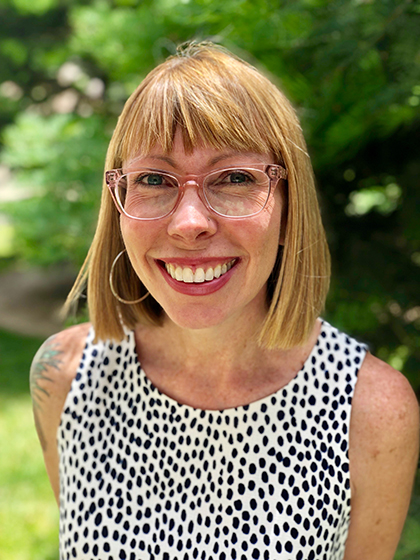Voices of U of U Health
Preparing for a New MD Program
This year’s winter Core Educator Retreat at the Spencer Fox Eccles School of Medicine had one goal: prepare faculty for the new mission-driven MD program.
Our retreat occurred during a significant cultural shift in academic medicine. The USMLE Step 1 exam, previously measured by a three-digit score, is now a simple pass/fail.
We want students and faculty to find more authentic ways to connect, learn, and grow. At this year’s retreat, educators discussed fostering whole physicians, not just test takers and list checkers.
Programmatic Learning in the New MD Program
This year’s keynote speakers were from the Royal College of Physicians and Surgeons of Canada.
Shiphra Ginsburg, MD, MEd, PhD, and Chris Watling, MD, MEd, PhD, discussed how to improve student assessment.
Traditionally, there are two types of assessment:
Formative:
- Assessment for learning
- Informal
- Not final; assumes room for growth
- Encourages student-led learning
Summative:
- Assessment of learning
- Feels final
- Creates stress
- Determines graduation, accreditation, and match
Ginsburg and Watling asked an important question: What about a new kind of assessment? One they call “programmatic assessment.”
Programmatic assessment combines formative and summative to build a cycle of inquiry. They called it the “Swiss Army knife of assessment.” Students get formative and summative assessments throughout their education.
The new MD program emerging from our MedEdMorphosis work over the last three years will adopt a programmatic philosophy. Longitudinal Integrated Clerkships (LICs), student-led clinics, and the house model will provide more opportunities for students to receive informal feedback, learn their knowledge gaps, and foster a growth mindset.

New and Improved Transition to Medical School
At this year’s retreat, educators got a first look into SCoPE, a new intro course for incoming students.
Expanding on the principles that guided Transition to Medical School (TTMS), SCoPE (Skills, Community, and Professional Exploration) is a six-week course. Its purpose is to instill basic skills, attitudes, and professional identities in new students. It will give them a road map for the next four years.
In SCoPE, students will learn:
- How to access and use library resources
- Basic clinical skills
- How to talk to patients
- Campus resources
- Basic scientific knowledge
- Wellness (how to handle it all, where to go for help)
- Professional identity formation
More information about SCoPE will be available as the new curriculum is released.
A New Culture of Learning
In addition, educators attended sessions about:
- Professional identity development
- Problem-based learning
- Identifying and removing stigmatizing language from medical education settings
- The Master-Adaptive Learner
The MD program is designed to improve culture and education. We are shifting away from lectures, building opportunities for programmatic assessment, and incorporating student-led clinics, LICs, and houses. These give students more engaging learning environments.
We hope the discussions and presentations at this year’s retreat help faculty adopt a more holistic pedagogy and inspire new ways of thinking.
The insightful discussions throughout the day were invigorating. We know the last few years have been difficult, but this in-person retreat reminded us of the robust and passionate community at our medical school. It was a positive, forward-thinking day.
Thank you to all who attended. We’re excited to watch the MD program bloom this fall.
